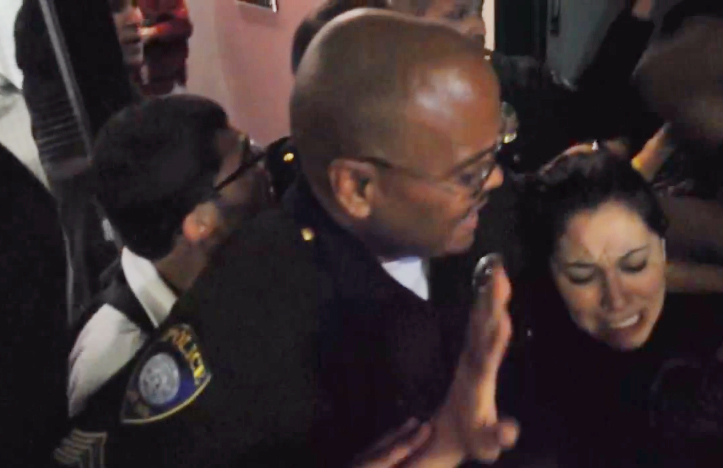It seems that one California politician is adapting an old adage for a modern era: If at first students protest and get pepper sprayed, try, try that legislation again.
AB 955 is a bill that would create a pilot program to raise community college tuition, allowing six allegedly overcrowded community colleges to charge the full cost of their classes during summer and winter sessions. A three-unit class would jump in cost from $138 to roughly $600, depending on the college involved. Authored by Assemblyman Das Williams (D- Santa Barbara), the bill now sits on Governor Jerry Brown’s desk awaiting his signature.
The colleges in the pilot are College of the Canyons, Crafton Hills College, Long Beach City College, Oxnard College, Pasadena City College and Solano Community College.
Local community college advocates said the pilot program could crack open the door to a future where two-tiered access to community college is the norm: The rich will be able to get classes, and the poor will be crowded out.
Those fears are prompting local San Francisco activists to join in the fray.
“AB 955 creates a system of haves and have nots,” said Shanell Williams, the student trustee of City College of San Francisco (no relation to Assemblyperson Williams). “Students that cannot afford to pay more will essentially be denied access,” she said.
Williams is a staunch advocate for education equality at City College, and led many of the rallies decrying the school’s loss of accreditation. She now plans to lead a rally against the bill here in San Francisco. But she’s not the only one who thinks this is a bad idea.
Santa Monica College tried to make a similar two-tiered system for tuition last year, offering classes that were previously closed due to lack of state funding by sticking the whole price of the class on students. Santa Monica College students were far from pleased.
Protests erupted, students were pepper sprayed, the incident became national news, and the idea was criticized across the board as class warfare.
The students’ outrage doesn’t just stem from raised tuition, but from a broken promise.
The idea of “open access” to classes is mandated by California’s educational master plan, which states that all students over the age of 18 should have access to community colleges and that tuition would be free. Part of the Donahoe Education Act of 1960, it was signed into law that year by Governor Edmund “Pat” Brown.
The Master Plan has eroded slowly since the 90s, and the once tuition-free UC and CSU systems now charge their students fees in excess of $3,000 a semester for full time enrollment — inflated prices which so far the community college system has resisted. Classes cost $46 per-unit at each of the 112 community colleges in California.
Assemblyman Williams justified his bill in an op-ed for The Daily Californian, saying the idea of open access has failed as the California community college system has already shut over 500,000 students from its doors, according to data from the state community college chancellor’s office.
“Yes, $600 is more expensive than $138, but only in the short term,” Williams wrote. “What’s the cost to a student forced by the current lack of classes to have to face one to four more years of living expenses to complete his or her education? It’s a lot more than $600.”
But Jessica Jones, two-year student body president of Santa Rosa Junior College, fears that the pilot program may just be the beginning.
“Who’s to say it won’t go like wildfire across the state?” she said in comments to the Guardian. Unlike the UC and CSU students, she fears the community college students she sees everyday would have more to lose when the fees are hiked. More often, she said, those students are “working many jobs, many have families, you’ll see less and less students able to take courses.”
It isn’t just activists who fear this will go statewide. The state chancellor of all 112 California Community Colleges, Brice Harris, has also publicly denounced the bill.
“The next time the budget goes in the tank they’ll tell (us), we can’t give it to you, tell your colleges to raise fees,” he said at a recent state meeting. “All of us who believe this is bad public policy for California are going to have to speak out forcefully with the (Brown) administration to make them understand what a huge policy change this is for the state of California,” he said.
Jessica Jones works with the Student Senate of California Community Colleges, and though their opinion is not uniform, many student leaders statewide are organizing actions against the fee hike pilot program. Crafton Hills College, Modesto Junior College, Pasadena City College, Long Beach City College, Santa Rosa Junior College and De Anza College will all have demonstrations or engage in write-in campaigns by the end of next week.
Williams, the City College Student Trustee is organizing a demonstration in San Francisco as well. The protest will be at Powell Street BART station on Tuesday, Sept. 24, at 6pm.

